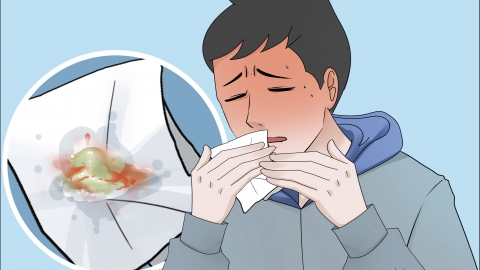How is Mycoplasma pneumoniae transmitted?
Under normal circumstances, Mycoplasma pneumoniae infection may be caused by droplet transmission, direct contact transmission, indirect contact transmission, aerosol transmission, or mother-to-child transmission. If symptoms of Mycoplasma pneumoniae appear, timely medical consultation is recommended for targeted treatment under a doctor's guidance. Detailed explanations are as follows:

1. Droplet Transmission
When an infected individual coughs, sneezes, or speaks, droplets containing Mycoplasma pneumoniae may be released. Healthy individuals who inhale these droplets may become infected. Droplet transmission is particularly common in crowded and poorly ventilated settings. It is recommended to maintain indoor ventilation in daily life and avoid prolonged stays in areas with high virus concentrations.
2. Direct Contact Transmission
Direct contact with an individual infected with Mycoplasma pneumoniae, such as handshaking, hugging, kissing, sharing eating utensils or towels, may also lead to infection. It is advisable to avoid close contact with individuals infected with Mycoplasma pneumoniae in daily life, especially during coughing or sneezing. If contact is necessary, protective measures such as wearing a mask should be taken.
3. Indirect Contact Transmission
Healthy individuals may become infected by touching objects contaminated with Mycoplasma pneumoniae, such as toys, clothing, bedding, or cups, and then touching mucosal areas such as the mouth, nose, or eyes. Frequent handwashing is recommended to avoid touching infection-prone areas like the eyes and nose. Additionally, medications such as Acyclovir Capsules, Cefalexin and Trimethoprim Tablets, and Ribavirin Tablets may be used under medical guidance to alleviate symptoms.
4. Aerosol Transmission
Aerosols refer to tiny liquid droplets suspended in the air, which may contain Mycoplasma pneumoniae. In enclosed and poorly ventilated environments, inhalation of aerosols containing Mycoplasma pneumoniae may lead to infection. It is recommended to seek timely medical attention and use medications such as Amoxicillin Capsules, Roxithromycin Tablets, and Cefalexin Dry Mix Suspension under a doctor's guidance to alleviate symptoms of Mycoplasma pneumoniae.
5. Mother-to-Child Transmission
If a pregnant woman develops a Mycoplasma pneumoniae infection during pregnancy, the mycoplasma may infect the fetus through the placenta. Pregnant women should pay attention to their health during pregnancy and may use medications such as Clindamycin Hydrochloride Tablets, Azithromycin Capsules, and Roxithromycin Capsules under a doctor's advice and guidance.
In daily life, patients with Mycoplasma pneumonia should ensure adequate rest, maintain local hygiene, and avoid consuming irritating foods to prevent worsening of the condition.






